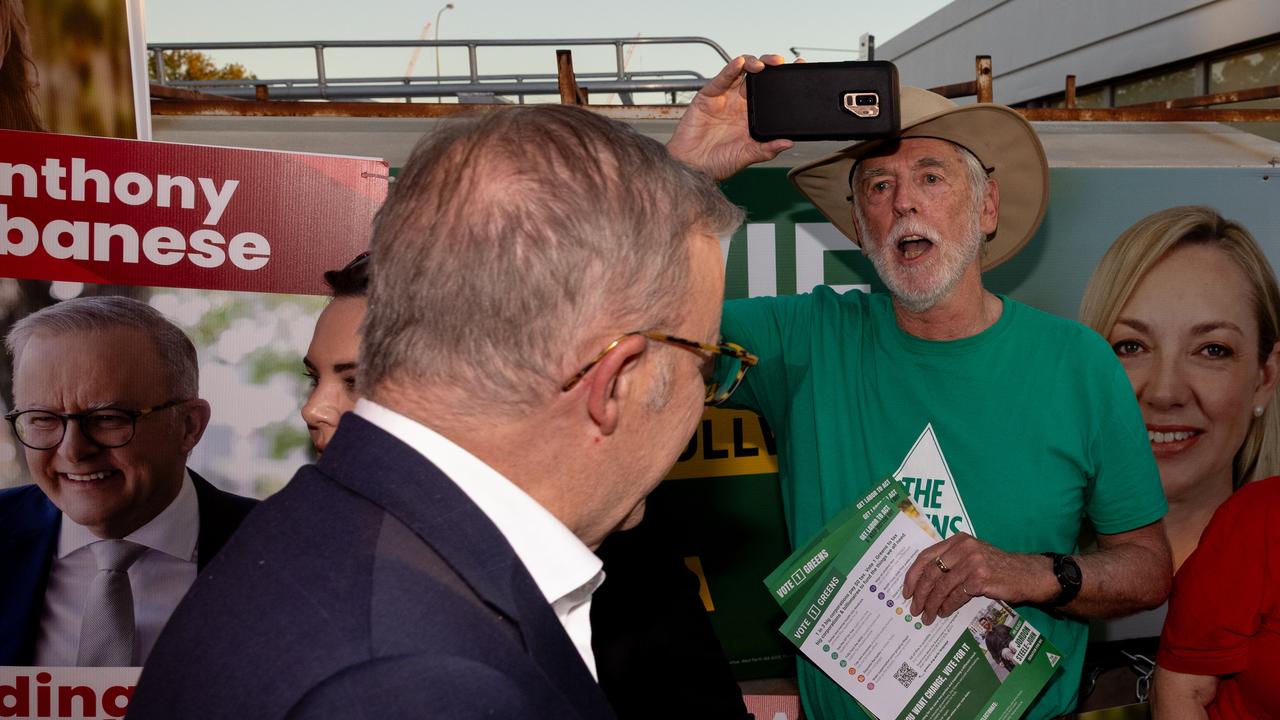Union for members a worthy notion
Those operating in the free market are already holding unions to account with the best cleansing agent: competition.
Generally speaking, the legal approach is managerial and remote, emotionally inhibited and politically off-kilter. The answer to every workplace relations problem is always another law because what the world needs is more legal people, writing long indignant letters to each other, containing threats of injunction applications, and other expensive and unhelpful procedures.
Within the federal government they talk in raptured tones about liberalism, individual freedom and the power of the free market. Yet in practice all they do is legislate, expand the state, clamp down on individuals and regulate the free market.
With all the angst over the Ensuring Integrity Bill, it is refreshing to observe those actually operating in the free market, solving problems, creating new services and holding unions to account with the best cleansing agent: competition.
Take, for instance, the people who formed the Nurses Professional Association of Queensland. This union of employees was formed in direct competition with the large, rich and powerful nurses union. NPAQ provides all the services of a union, with the relevant insurance, and — importantly — is unaligned to any political party, with membership fees of up to $268 a year lower than its competitor.
The driving force behind NPAQ is a retired industrial relations operative, Graeme Haycroft. Haycroft refuses to discuss his personal political leanings or affiliations because he understands that most employees just want an organisation that will look out for them at work, while refraining from party politics.
Like most people with real-world industrial relations experience, Haycroft knows that workers don’t want to be told who to vote for or fed a steady diet of material claiming that one side of politics is good while the other is evil. Importantly, most employees don’t want their union fees spent on various social causes or donated to politicians.
Five years ago, Haycroft did his sums and calculated that unions charged about twice as much as they actually needed to provide the services necessary for membership. He figured it would be possible commercially to set up low-cost alternatives to Labor Party-aligned unions.
In 2014 NPAQ was formed, governed by a constitution that dictates the union be branch-based and the focus remain on services rather than activism. All party political funding and support is banned, and there are no exceptions to this rule. Protection without the politics is the motto, and the executive sees this position as non-negotiable, no matter what.
The NPAQ website says the union “stemmed from a discussion between a group of nurses voicing their annoyance at the union being vocal about ‘union opinion’ of the then state LNP government. The union website and newsletter equally expressed their ‘opinion’. Whether their opinion was right or wrong is irrelevant, and not the issue … people have different political opinions. The nurses’ frustration was that an organisation which existed as their only option for professional indemnity insurance, support and protection (was) happy to take their membership money to battle for political causes which quite possibly at least half of their members disagree with.”
All unions find it a huge task to recruit members, and NPAQ is no different. At some point, someone has to go to a workplace, talk to a worker and ask them to sign a form handing over money, and access to people in their working time is always difficult to organise. Through the years though, with strict observance of targets, consistent marketing and good feedback by word of mouth, NPAQ’s numbers have grown steadily. Its membership is now at 5000 and rising; a big achievement considering the challenges, which have been significant.
The Queensland Labor government has a union encouragement policy in place for all public sector workers. Yet because of a legal technicality regarding registration, NPAQ is denied recognition and assistance with recruitment of union membership.
This year, the Department of Health issued a memorandum saying that NPAQ was not entitled to be a party to an award or agreement, had no standing in disputes or grievances, and was not permitted to display any material in the workplace that implied it was entitled to represent the industrial interests of workers.
Haycroft says the growing membership is proof of the need for a union focused on nurses. Further, he expects the issue to be dealt with under a new Queensland human rights bill, which comes into effect early next year.
In addition to this, there are three class actions planned against hospitals that have been underpaying nurses. Haycroft says that this “wage theft” is institutionalised and being done “under the nose” of some who “refuse to do anything about it”.
If the Attorney-General and his department are looking to change the industrial relations landscape in this country for the better, they will make simple changes to our regulations. They will make it easier for workers to form unions because dismantling union monopolies and increasing competition will yield better results than any other mechanism.



When it comes to understanding unions and industrial relations, the Coalition suffers a natural disadvantage due to the large numbers of lawyers in its ranks.